This article was updated on September 25th, 2021
Weight gain in dogs is a huge problem today, and the number of obese dogs is on the increase.
According to a recent study conducted by the Association For Pet Obesity Prevention, 53% of dogs are overweight to some degree.
This is really worrying because weight gain is a double-whammy for your dog because it can be caused by poor diet or disease… and that extra weight can also cause more health issues to develop.
Sudden weight gain in an older dog is something that you always need to take seriously.
Common Causes of Rapid Weight Gain in Senior Dogs
Older dogs have an above-average tendency to gain too much weight, and in seniors this is more likely to be caused by an illness or health problem, than it is in younger dogs.
Even when the cause of the weight gain is benign, being too heavy puts a lot of extra strain on their already tired bodies and fragile joints, therefore it’s something to keep an eye on.
If your older dog suddenly seems to have gained a lot of weight, there could be caused by a lot of different things. Some of them simple, others more serious.
Here are the most common causes of weight gain in older dogs….
Poor Diet
The type of weight gain in dogs that’s caused by poor diet tends to occur slowly over time. When you look at your dog every day it’s easy to miss this gradual change.
But your senior dog’s metabolism isn’t as fast as it used to be, and as his ability to use up the calories he’s eating slows down, the weight gain can speed up. An older dog’s metabolic demands tend to decrease as they are exercising less, so any extra calories are stored as body fat.
Important Info
When we say ‘poor diet’, that doesn’t necessarily mean that you are feeding your senior a sub-standard, low quality food (although you might be, without realizing it!). It could just mean that the dog food you’re using isn’t right for his size, activity level, or overall health. In other words its not very compatible with him.
The fact that Fido is probably less active than he was when he was younger, just compounds this problem, as does giving him too many treats, or letting him share your ‘people food’.
So, although one day you might suddenly realize that Fido looks a bit chubby, and think it happened overnight, he might actually have been headed in that direction for a while! Regularly weighing him can prevent this for creeping up on you.
Your older dog has very unique dietary needs… because it’s not just his age that you need to take into account.
Getting the right nutrient balance means paying attention to your dog’s age, activity level and overall health.
Just picking out a food that says ‘Senior Formula’ or something similar, isn’t the answer as there are no regulations that control what constitutes a senior diet.
My page on senior dog nutrition discusses some of the most common misconceptions that surround feeding older dogs, and will help you figure out exactly what your dog needs in his bowl.
Other Symptoms….
Weight gain in older dogs which is caused by an imbalance in their diet doesn’t have many symptoms, other than gaining (or losing) weight.
And what you do see will be mild and shouldn’t make him act ‘sick’.
But you could possibly see:
- Dry skin/coat
- Dull eyes
- Diarrhea or constipation
- Low energy levels
- Occasionally hyper-activity, or behavioral changes
Of course, if Fido seems unwell in any way, don’t assume it’s just his diet… make sure he gets checked out by a veterinarian as there could be a more serious underlying cause.
Thyroid Disease
We’ve all heard people explain away their weight gain with the phrase “it’s just my thyroid”.
Sometimes of course it IS their thyroid that’s at fault, and dogs can suffer from the same problem.
The thyroid gland produces hormones which control metabolism.
When too little thyroid hormone is produced (under-active thyroid), the condition is called ‘hypothyroidism’ and the symptoms of this problem include weight gain.
Hypothyroidism is most often seen in middle-aged to older dogs from the medium to large sized breeds. But any dog of any size/age could have it.
Other Symptoms
If your older dog has an under-active thyroid you might see one, or more, of these other symptoms. But you might not.
- Dry, dull coat
- Unusual hair loss, or thinning ‘patchy’ coat, often symmetrical on both sides.
- Skin changes – it might be itchy, look darker, or seem thicker
- Lethargy and reluctance to exercise
- Lack of regular heat cycles and poor fertility
- Getting cold easily
The only way to find out if Fido is suffering from hypothyroidism is to have your vet run some blood tests.
Cushing’s Disease
Cushing’s Disease (also known as hyperadrenocorticism) is another hormone-related problem which is most likely to affect middle-aged to older dogs.
This time symptoms are caused by too much of a particular hormone, a steroid hormone called cortisol.
Again, this hormone affects Fido’s metabolism (as well as other important bodily functions), and too much of it in your senior dog’s system causes problems.
Other Symptoms
With Cushing’ Disease you’re likely to see more symptoms than just rapid weight.
The most common ones are:
- Increased appetite
- Distended abdomen, or ‘pot belly’
- Increased thirst
- Excessive urination
- Hair loss and thin skin
- Loss of muscle tone and strength
- Excessive panting
Any one, or a combination of, these symptoms can be a sign of various other diseases or conditions.
Your veterinarian can diagnose Cushing’s Disease by taking a blood sample and having it tested.
Diabetes
Diabetes can affect dogs of all ages, but it’s most likely to appear in middle aged to elderly dogs.
Rapid weight gain can be a symptom of diabetes in dogs, but so can sudden weight loss!
Other symptoms that you might notice in a dog who has diabetes include:
- Increased thirst
- Increased urination
- Lethargy
- A sweet-smelling breath
As you can see by now, most conditions have at least one, if not several, symptoms in common.
So, to get an accurate diagnosis you need to have Fido examined by your veterinarian, who will do a blood test to get to the root of the problem.
Other Causes of Weight Gain in Older Dogs
Some other conditions that could cause Fido to gain weight include…
- Stress – like us, anxious senior dogs sometimes ‘stress eat’
- Medication – older dogs are often on medication, and some can cause weight gain
- Water retention – this can be caused by illness, or by medications
- Breed type – some breeds are more prone to gaining weight than others
Medications which can cause Fido to put on weight, or retain water, include anti-inflammatories, corticosteroids and anti-depressants.
Some dog breeds which are more prone to being overweight as they age include Labrador Retrievers, Basset Hounds, Beagles, Rottweilers, Spaniels, St. Bernards, Bulldogs and Dachshunds.
BUT, pretty much any dog can get too fat given the right (or wrong) circumstances, diet, or health problems!
Problems Which Can Be CAUSED By Weight Gain
Gaining weight can be a sign of illness or that your dog isn’t getting the right nutrition, but it can also BE the cause of problems itself.
Older dogs are often already suffering from creaky joints, reduced organ function, and the loss of muscle tone and strength.
All of this means that their bodies don’t need the extra stress of having to carrying extra pounds around on a daily basis.
Excess weight can cause health problems even for younger, fitter dogs and it’s always best to keep your dog on the ‘lean’ side. The sooner you start, the easier the weight will be to control.
This goes for puppies too, especially with the large and giant breeds.
The type of issues that that can be caused by a dog being too heavy, or even obese, include – joint/ligament problems (including hip dysplasia), heart problems, diabetes, respiratory difficulties, liver insufficiency, skin irritations and more.
Then there are other worries, ‘minor’ ones such as excessive flatulence (probably only considered to be minor if you don’t have to share your bed with a gassy bulldog!), as well as some that are potentially more serious such as heat intolerance, or increased risks related to surgery or anesthesia.
Overall, a heavy dog is NOT a healthy dog, and the toll this takes on your senior dog reduces the quality of life he might otherwise have, and can even reduce the number of years you get to spend with him.
What To Do If Your Senior Dog Is Overweight
Before you do anything else, you really need to have your golden oldie examined by your veterinarian.
They will weigh your dog, perform a full clinical exam and can assign your dog a ‘body condition score’
As you can see from all the above info., there are just too many possible causes of rapid weight gain in dogs for you to be able to figure out which one (or combination) is causing the problem.
Plus, many health problems can only be diagnosed with a blood test.
If your older dog has gotten chubbier slowly and seems perfectly healthy…. i.e.. is eating normally, drinking normally, defecating normally and acting just fine, then chances are good that his extra pounds are just the result of a slower metabolism, too much food and lower activity levels.
But, if the weight gain is sudden, or Fido shows ANY signs of being unwell, or just ‘not himself’, it’s important to make an appointment for your vet to take a look at him.
Disclaimer: This website's content is not a substitute for veterinary care. Always consult with your veterinarian for healthcare decisions. Read More.


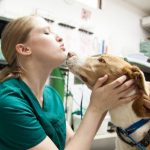
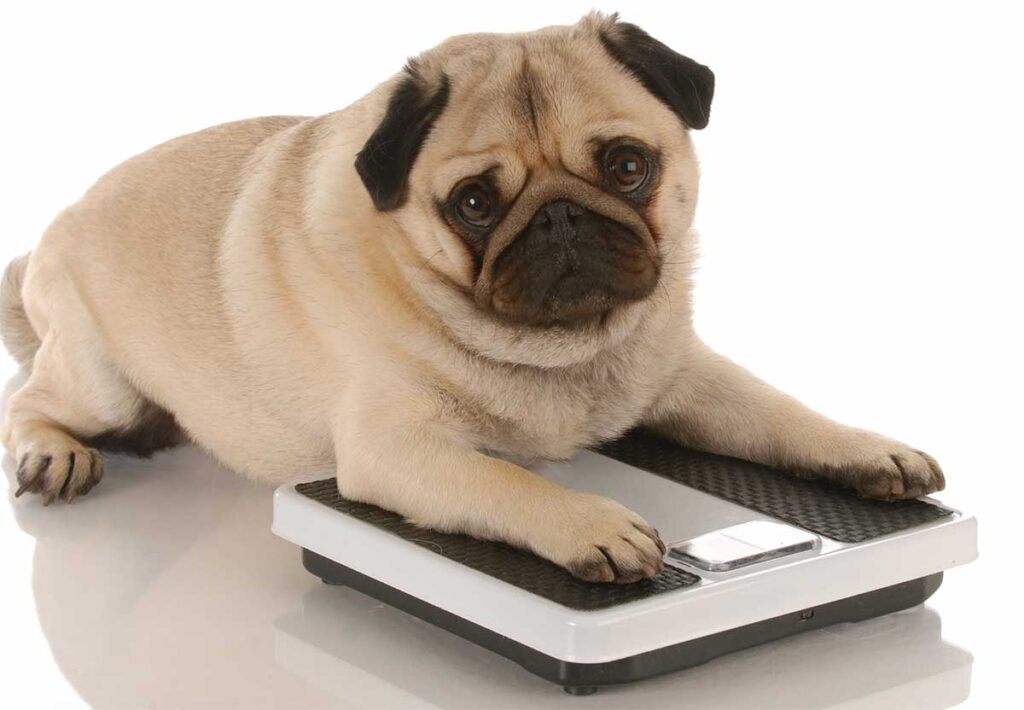
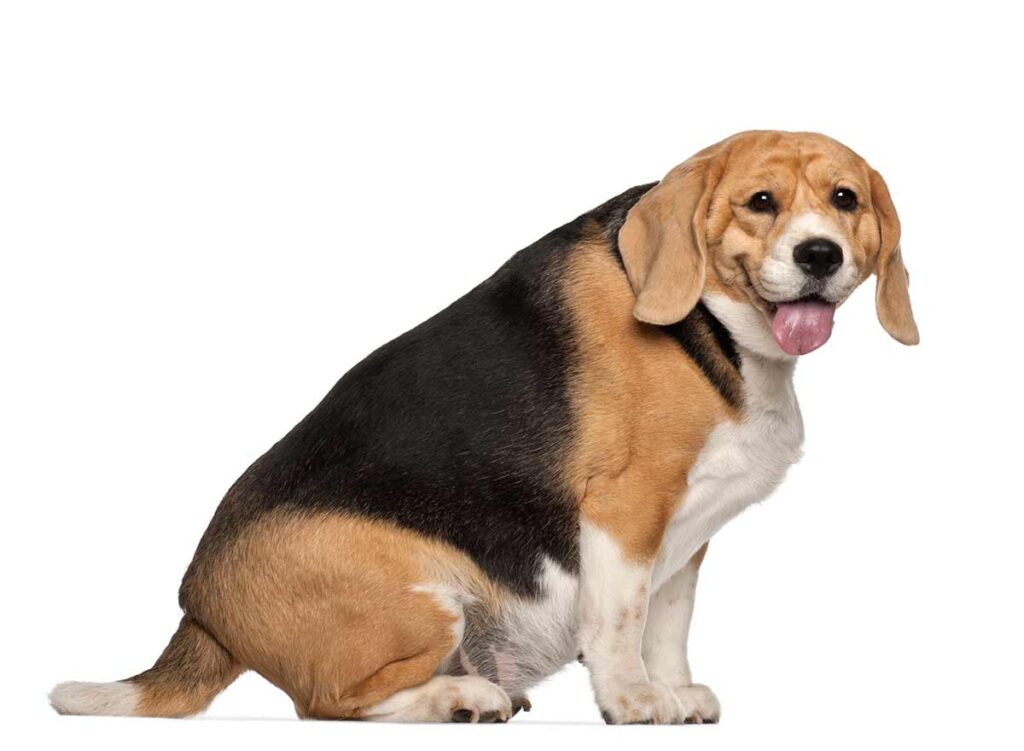
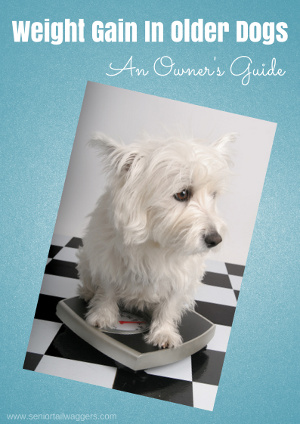
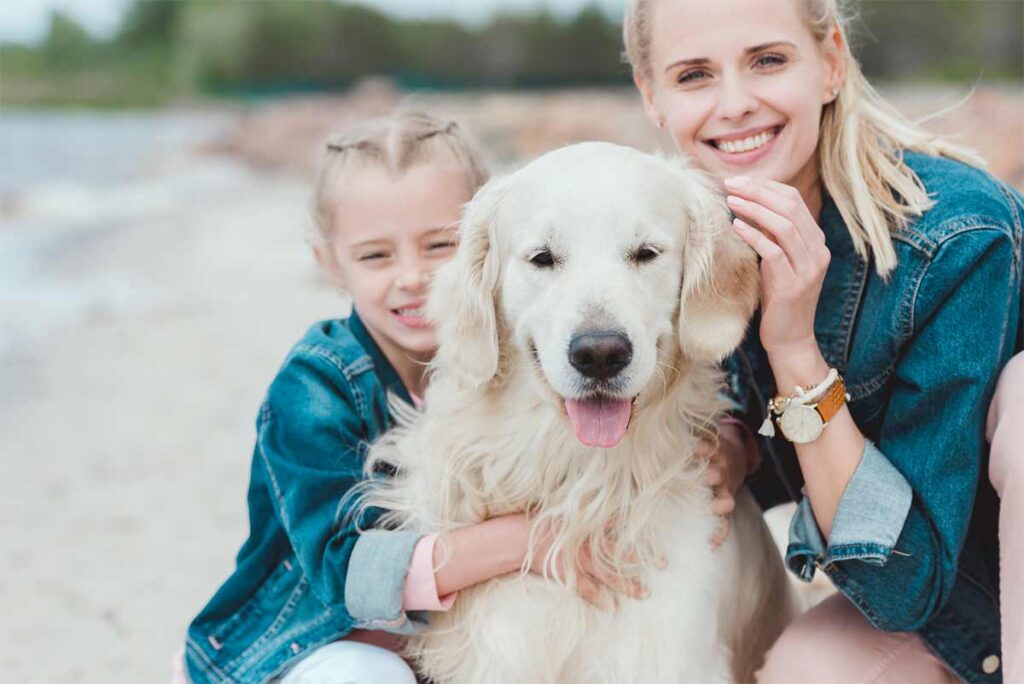
I completely agree with the article that weight gain in older dogs can be a significant issue. My own Golden Retriever, Max, started gaining weight in his old age and it was causing him a lot of discomfort. I had to make some significant changes to his diet and exercise routine to get him back to a healthy weight. It’s so important to monitor our furry friends’ weight as they age, thanks for sharing this informative post!
Thank you for this informative post! It’s comforting to understand the potential causes of weight gain in older dogs. I had no idea that some medications could contribute to this issue. I’ll definitely be more mindful about my dog’s diet and discuss any concerns with the vet during our next visit.
This was really informative! I had no idea that factors like metabolism and activity levels could change so much in older dogs. I’ll definitely be more mindful of my dog’s weight and watch for any sudden changes. Thanks for the insights!
Thank you for this informative post! I’ve noticed my older dog putting on weight recently, and it’s given me some peace of mind to understand the potential causes. I appreciate the tips on monitoring her diet and activity levels. It’s also comforting to know when it might be time to consult the vet. Great resource for concerned pet owners!